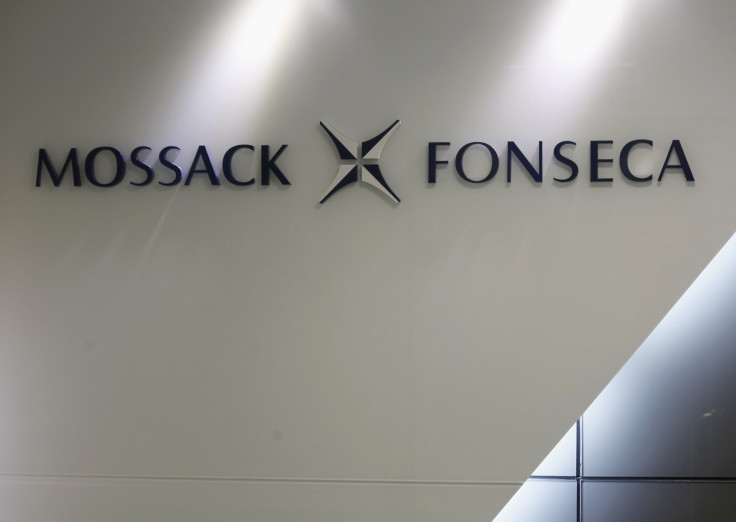China Blocks Discussion Of Panama Papers’ Allegations, Accuses Western Media Of Political Motives

SHANGHAI — China has sought to block debate on allegations in the leaked Panama Papers relating to past and present Chinese officials — while Chinese state media have claimed the leaks have political motives, and have focused on Moscow’s rejection of allegations against President Vladimir Putin.
China’s foreign ministry Tuesday brushed aside claims that family members of eight past or present members of China’s ruling politburo — including the brother-in-law of President Xi Jinping — had offshore bank accounts or companies. Foreign Ministry spokesman Hong Lei told reporters in Beijing that the allegations were "groundless," adding he had no further comment. Government-controlled media largely ignored the topic, while links to foreign articles on the subject were blocked online, and many social media posts on the topic deleted.
Observers said this response highlighted the authorities’ nervousness about the topic, with President Xi having staked much of his credibility on a high-profile anti-corruption campaign designed to restore the reputation of the Communist Party, and the government sensitive to claims that the campaign is as much about political score-settling as about rooting out all corrupt officials.
The Panama Papers do not accuse any of those named of specific wrongdoing, and many of the allegations — including that Xi’s brother-in-law had offshore companies, which became dormant before he became party boss in 2012, and that the daughter of former Premier Li Peng also had links to offshore firms — are similar to those already reported by the International Consortium of Investigative Journalists (ICIJ) in early 2014.
Yet the papers do suggest offshore accounts may be used to cover up misdeeds, and the topic clearly remains a highly awkward one for China’s leaders, with the latest claims that the teenage granddaughter of another former Politburo member had a company registered in her name likely to do little to dispel public perceptions that many top officials’ families have been focused on making money.
The official English language Shanghai Daily did re-run foreign news agency reports on the revelations Tuesday, but it carefully cut out any mention of Chinese officials being involved — and the article later appeared to be inaccessible on its website. Most other major web portals and newspapers ignored the topic entirely — indeed U.S.-based internet research organization China Digital Times said local media had been warned of "severe" punishment if they carried foreign reports critical of China. The only reference to the Panama revelations on popular web portal Netease, for example, was to denials of any wrongdoing by suspended Union of European Football Associations president Michel Platini.
The Global Times, a tabloid run by the official People’s Daily, also ignored references to Chinese officials — instead highlighting Russia’s rejection of allegations involving Vladimir Putin, with whom the Chinese government has good relations and who generally receives positive coverage from China’s official media.
“Russia strongly rejects and denounces rumors of ‘Putin laundering money’,” ran its headline. The paper did report the Guardian’s allegations that one of Putin’s closes friends had offshore accounts, but it emphasized Putin’s spokesman Dmitry Peskov’s comments that the leaks “were aimed at damaging Russia’s stability,” and his allegations that the journalists who reported their content had a "background in the C.I.A. or the [U.S.] state department."
The paper’s English-language edition also highlighted Peskov’s comments accusing the west of “Putinophobia” and concocting “bad things” about Russia. And in an editorial, which also took care not to mention any reference to Chinese officials, it said the revelations had "basic political targets,” and were primarily aimed at Putin and other leaders of "non-Western countries.” It acknowledged the problems the leaks have caused for Iceland’s Premier Sigmundur Davio Gunnlaugsson, who has faced calls to resign over his wife's offshore holdings — but it said this was just “small potatoes.”
The Global Times said that whenever similar leaks occurred, “the Western media has taken control of the interpretation … and Washington has demonstrated particular influence in it.”
Apparently disregarding the impact of the leaks by former C.I.A. employee Edward Snowden, which caused Western governments major discomfort over their use of cyber-snooping, the Global Times said that “Information that is negative to the U.S. can always be minimized, while exposure of non-western leaders such as Putin can get extra spin.”
It said that online “disinformation … will become a new means for the ideology-allied Western nations to strike a blow to non-western political elites and key organizations,” adding,“the West will be happy to see such leaks happen if their opponents are attacked.”
Analysts said the revelations were likely to add to the Chinese government’s desire to control the internet and flow of information into the country. In recent months, Xi has called for state media to emphasize the Communist Party line, and officials have introduced new rules tightening control on internet content, particularly from abroad.
After the release of the previous ICIJ leaks in 2014, China responded by blocking the websites of the Guardian and other media that had broken the claims, in some cases for many months. And a report on popular news website Sina.com’s business blog suggested that the latest revelations were likely to be beneficial to the share prices of internet security companies.
An earlier report about the alleged wealth of President Xi’s extended family by Bloomberg in 2012 led to the ongoing blocking of the firm's news website in China. Analysts say Xi subsequently ordered his family to cut many of their links with business — while the Communist Party last year introduced new pilot rules restricting the business activities of senior officials' family members, saying these were a frequent cause of corruption.
Yet in a possible hint at the public perception that corruption has not been completely rooted out in China, the Sina blog also added: “Power and wealth are the two most popular things in human society – and leaders are similarly not immune to [the attraction of] money.”
© Copyright IBTimes 2025. All rights reserved.






















